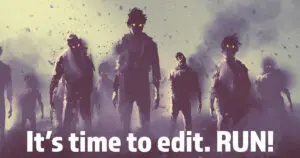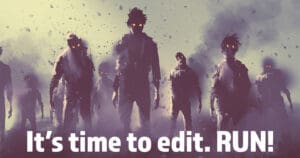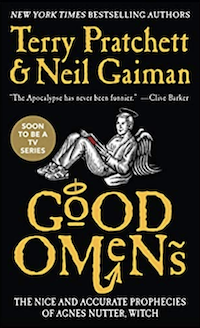Estimated reading time: 5 minutes
Man, this class was a lot. I spoke in a previous recap about the way online classes suffer from compression; a course that takes an entire semester of four months in a physical school takes just eight weeks online. LIT-200 is the epitome of that problem. Each week—including week eight, after we've already turned in the final project—is devoted to two or more literary analysis techniques.
About LIT-200
That isn't to say that the work is difficult. With attention and effort, the material itself is reasonable. The pacing is the problem.
So, the work wasn't that hard but it was all compressed into a tightly wound package over a short period of time. Did I learn anything?
Yes. In fact, it's possible I learned more valuable information from this course than I had from any other up to that point. The best classes don't fill a student's head with contextless information, and they certainly don't tell students what to think. The best classes teach students how to think.
My instructor was Sydney Walmsley, and I think what I appreciated most about her was the way she rolled with whatever I wanted to use for discussions and journals. I applied literary theories to Neil Gaiman & Terry Pratchett's Good Omens, Brandon Sanderson's Mistborn: The Final Empire, and The Rocky Horror Picture Show. I had a couple of email exchanges with her and always found her encouraging and enthusiastic.
Literary Theories
LIT-200 presents 17(!) methods by which readers may critically examine literature and other media. No one is considered better than another, and some work in conjunction with one another. Here they are, in the order we covered them, starting in week two:
- Formalism and New Criticism
- Structuralism, Poststructuralism, and Reader-Response
- New Historicism and Cultural Studies
- Marxist and Psychoanalytic Criticism
- Feminist Theory, Queer Theory, and Gender Studies
- Postcolonial and Critical Race Theory
- Ecocriticism, Disability Studies, and Digital Humanities
It's a lot.
All of these theories, though—even the ones that have fallen out of favor since they were all the rage (looking at you, Formalism)—have something to offer anyone trying to find meaning in works of literature and art.
The grouping makes a lot of sense. Formalism and New Criticism are related. Feminist Theory, Queer Theory, and Gender Studies have a lot of overlaps. I think that if they hadn't been grouped so logically, we would have had big problems.
As I write this, I'm in LIT-319: Shakespeare. I found an excellent book of critical essays about Hamlet. The text includes essays looking at Hamlet through the lenses of Feminist Theory, Marxist Theory, Psychoanalytic Criticism, and New Historicism. Because of LIT-200, I know how to read them. (If you know you'll be taking LIT-319, try to grab this book. It's out of print and hard to find, but it covers Shakespeare's life and the influence of Elizabethan culture perfectly for 319).
Course Materials
LIT-200 has two primary ways of conveying information: a textbook and… shmoop. Rather than explain what shmoop is, I'll share with you now the feedback I gave to the school upon finishing the course.
“Please replace the “shmoop” content. It’s condescending and it reads like a tragically uncool person trying to use the hip lingo of the youngsters of today. I may be in my mid-40s, but I still think I can say with certainty: young people aren’t made more comfortable with this approach. They know when a subject has been dumbed-down. I did, when I was their age.
Further, it is grossly insulting to the material it purports to cover. About Marxism, one of the most influential and heady schools of thought in the history of humanity, “shmoop” says, “Marxists are interested in money, food, and material goods above all else.” I cannot begin to list the ways that statement is incorrect, and SNHU fails any student who walks away from this class with that as an overview of Marxism.”


I think the most insulting thing about shmoop is that it would be ineligible for use as a scholarly source in any other class. Everything SNHU has taught me about proper academic sources says that shmoop isn't one. Why is it a learning resource for this class?
The Book
The textbook, Literary Theory: A Practical Introduction, by Michael Ryan, was good. The writing wasn't too dry, Ryan uses contemporary examples in his explanations of theories, and the text didn't wear out its welcome. I bought the book digitally because I didn't think I'd ever use it again after this course, and that was probably the correct choice.
I usually have a section in my course recaps that gives advice to students registering for the course, but not this time. LIT-200 is very straightforward. It's a lot of reading and a lot of writing, and you just how to plow through it. Time management is the key to success.
The Final Project
I have mixed feelings about this project. Everything happened so fast, and I was taking two courses at the time. Shmoop was a valid, listed resource, and yep, I used it. I hate that I used it, and I could have gone outside of that website and done some real research, but… nah. Took the road more traveled this time, and it made no difference whatsoever.
In the End
It wasn't the most fun class I've ever had, but outside of the writing workshops, it might be the most valuable.
Final Grade: A (100% …again.)
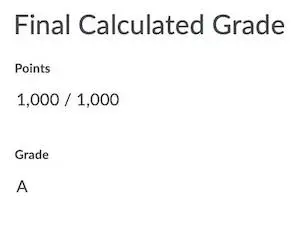
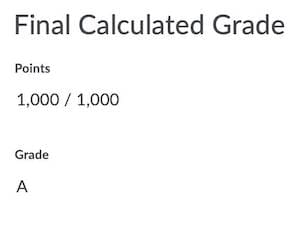
Now that I'm in classes at the 300 and 400 levels, perfect finishes will not happen again. The grading is much stricter. Next week I'll be recapping my first upper-level class, ENG-340.




